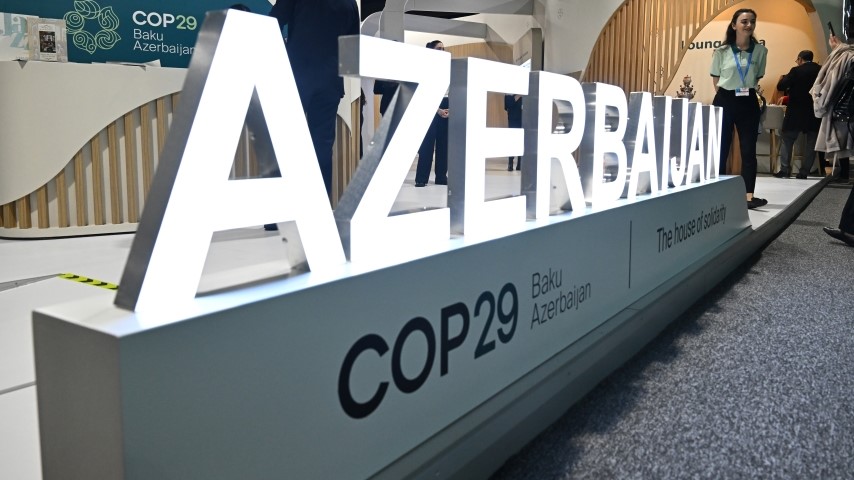Azerbaijan’s Calls For Peace Demonstrate The Shallow Absurdity Of COP29
Photo by IAEA Imagebank, CC BY 2.0
The annual farce of the United Nations climate change talks, this year known as COP29, has rolled around again. Ongoing as I write, this year’s prospects aren’t looking particularly rosy. Azerbaijan, a petrostate that actively intends to expand both its fossil fuel and its mining operations, represents another terrible choice of host country following the United Arab Emirates and Egypt, given the ecologically destructive practices that fuel its economy. But it gets even more absurd, as, in its capacity as COP host, Azerbaijan has called for a “global truce,” demanding that all countries presently engaged in conflict lay down arms.
It is a noble call, to be sure, but one which grates just a little bit, given that it was issued by an authoritarian petrostate which oppresses its own people and has been accused recently of ethnic cleansing and other war crimes.
The corrupt Azerbaijani regime, headed up by President Ilham Aliyev and his extended family, has brutally cracked down on civil society within the country, arresting and allegedly torturing journalists and activists critical of the government, while new laws have restricted the work of NGOs and media organizations there. Freedom House, in an assessment of the country’s political rights and civil liberties, issued Azerbaijan with a miserable score of seven out of 100 in 2024, indicative of how profoundly repressive the country has become under Aliyev.
Arguably the darkest moment in Azerbaijan’s recent history is what has happened in the disputed Nagorno-Karabakh region, a landlocked, mountainous area in the South Caucasus with a complicated history. During the Soviet era, the region, despite being home to a majority ethnic Armenian population, became a part of the Azerbaijan Soviet Socialist Republic, albeit while retaining a broad degree of regional autonomy. The tensions between the Armenians of Nagorno-Karabakh and the Azeris surrounding them were tempered by the fact both populations were a part of the Soviet Union, but, as the U.S.S.R. began to collapse, they bubbled to the surface once again.
-

-

-

-

-

-

-

-

-

-

-

-

-

-

-

-

-

-

-

-

-

-

-

-

-

-

-

-

-

-

-

-

-

-

-

-

-

-

-

-

-

-

-

-

-

-

-

-

-

-

-

-

-

-

-

-

-

-

-

-

-

-

-

-

-

-

-

-

-

-

-

-

-

-

-

-

-

-

-

-

-

-

-

-

-

-

-

-

-

-

-

-

-

-

-

-

-

-

-

-

-

-

-

-

-

-

-

-












































































































